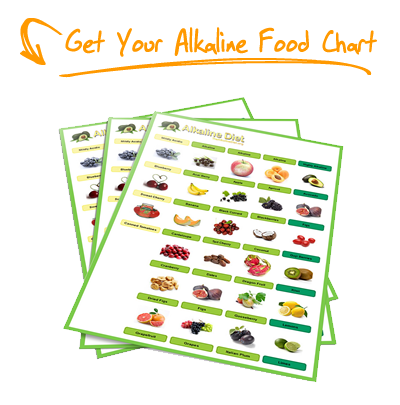New Nutrigenomics Tells What Diet Can Prevent Disease
Posted on 31. Mar, 2010 by Staff Writer Candy Del Carmen in Blog
Worry no more because the introduction of genomics will fulfill its promise to restore the health of people.
As we live in a world where the only constant thing is change, people would have wanted a kind of change that would promise for a bright future in every aspects of life. You may think it is almost impossible to believe but if there is any chance or even just a string of hope, the human being would still hold on to that.
Just recently, Kansas State University supported the claims of many researchers regarding the potential of nutrigenomics to offer wealth of benefits in preventing any diet-related diseases. It is a new medical breakthrough of studying the genetic make up of individual and tailoring specific diet accordingly. A fast-moving field of medical studies of nutrigenomics connects genetics and nutrition to regulate genes function that will trigger to act in a healthy way.
Nutrition as we all know is the study of food and utilization of diet by which our body breaks down the food or drink we consumed. On the other hand, human genome in simple term is the hereditary information encoded in DNA (deoxyribonucleic acid- genetic instructions in the development of all living organisms).
It is the DNA in an organism which genes are included. It carries information for making all the proteins and determines how the organism looks and how the body fights infection. By knowing the effects of DNA variations, this may lead to new ways to treat future chronic disorders that can harm us.
What we do not realize is that by eating specific food, we can achieve our genetic potential to stop any illnesses before they can occur. Yes, it is not in any forms of medicine, but instead it relies in the precise nutrition recommended for you.
In light of this, in one interview conducted to Dr. Ahmed El-Sohemy who currently holds a Canada Research Chair in Nutrigenomics, he explained that each person responds differently from the others in terms of how genes impact our responses to the food we take.
As an example, the result of caffeinated coffee intake can either lower or increase the risk of heart attacks. The study was published in the Journal of American Medical Association. Those who have slow gene that breaks down caffeine (CYP1A2) have the high risk of heart attack and vice versa. In other words, drinking caffeinated coffee is not good for everyone especially to those who are slow metabolizer of caffeine.
Another interesting study of intervention on genotypes is the ability of fish oil to lower blood lipids. It turned out that particular version of PPARG to a person can respond to lowering effects of fish oil. Peroxisome proliferators-activated receptor gamma (PPARG) regulates glucose metabolism and fatty acid storage. The said effect maybe helpful in the vast majority but likewise different for those who have APOE (Apolipoprotein E) gene which is important in lipoprotein metabolism and cardiovascular ailments.
Furthermore, green tea as well-known to its purported health attributes may also have different reaction to people depending on how certain individual can break down the compounds slowly and do not need to take as much to get the same benefits.
Please take note that specific foods to eat could be tailored by nutritional professionals based on your genetic make up after the genome has been mapped by health experts. Researchers are currently working on these to support their medical studies with the collaborative effort from different industries of genetics, public health and food science.
Culinary department on the other hand will have to face the challenge to create nutritional food without sacrificing the good taste and appeal of the product.
In the next few years to come, advances in medicine and great sagas in the advent of genomics will provide an opportunity to shape the future of nutrition that will restore health and prolong life. With fervent hope, may this revolutionary breakthrough can bring changes to our health and well-being forever.
REFERENCE:
http://www.ornl.gov/sci/techresources/Human_Genome/project/about.shtml
http://members.ift.org/NR/rdonlyres/2AA0A530-C2A5-4AC9-BC8F-F8F0AC15998D/0/FoodGenes.pdf
http://www.metaproteomicslabs.com/nutrigenomics.asp
http://www.naturalnews.com/028454_nutrigenomics_disease.html
http://www.k-state.edu/media/newsreleases/mar10/nutrigenomics30510.html
http://news.ufl.edu/2003/05/19/nutrigenomics/
http://linkinghub.elsevier.com/retrieve/pii/S0002822306000022
http://www.tcd.ie/IMM/research_nutrigenomics.php
http://www.nap.edu/openbook.php?record_id=11845&page=3





Recent Comments